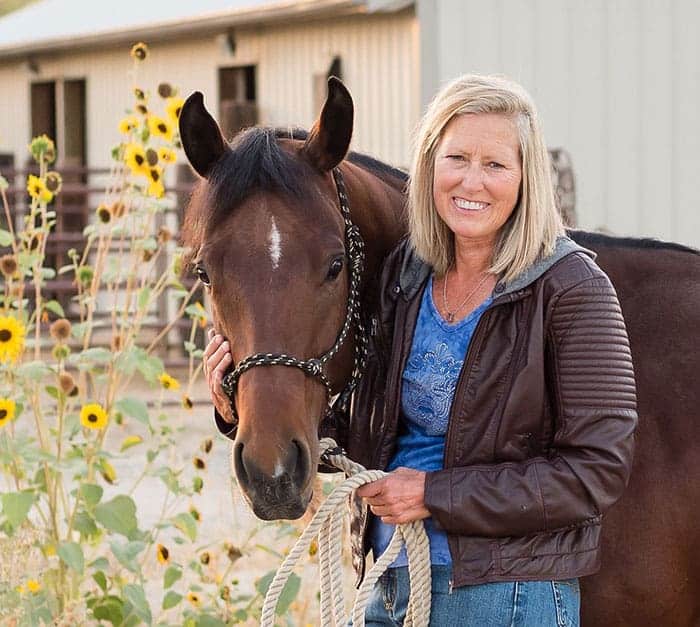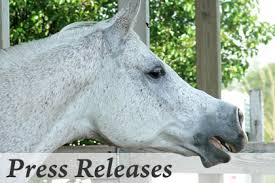Recycling Down on the Farm
- Posted by Alayne Blickle
- Topics: Blogs, Smart Horse Keeping
Looking for ways to trim your horse budget? Besides helping the environment and being “green,” another benefit of recycling is it saves money! It can reduce your trash bill, offer you free or low-cost horsey items, improve your pasture (as with the use of compost) so that you have more forage and less hay billsÉ the opportunities are endless!
Recycling and using recycled products at home and on the farm or ranch provides us with several important benefits. Recycling reduces the amount of trash in landfill sites, which cuts down on the cost of waste disposal and the clearing of more land for new landfills. Decomposing waste can release noxious gases and chemicals as it decomposes, potentially creating air and water pollution. In addition, most waste is not biodegradable. It hangs out in the landfills for hundreds of years, just sitting there, piling up with the rest of the trash. Recycling also helps preserves wildlife. When fewer trees are cut down to make new wood products, or for space for landfills, than that means more habitat for wildlife and trails for us to ride on!
So here are a few tips to help jump-start your thinking on how you can recycle around your horse property, save a few bucks in the process, and become a greener horse keeper.
1) Used conveyor belting makes a great, inexpensive substitute for rubber stall mats. Use them in stalls, aisleways, walkways, wash racks or grooming areas. Check with local gravel quarries to see if they have spent conveyer belting available for free or at a low cost. When you pick up the belting, you will need a pick-up truck without a canopy as usually quarries roll up belting to lift it using a forklift. Sometimes they will cut them for you, so it might help to know the lengths you’d like before you go.
2) Buying used items from Internet exchange sites is another great option. Materials exchange websites are in many parts of the country. These websites provide a convenient way to locate used or surplus building materials and household items that are available in your community at any given time. You may be able to find surplus lumber along with other materials such as hogfuel, lime, fencing supplies, plastic barrels (great cut length-wise as feeders or, with the addition of a spigot, made into water storage for the trailer), farm equipment, barn paint, doors, window frames, used conveyer belting and lots more! To find an exchange for your location search under “materials exchange” or “waste exchange” and your state, country, region or city name. Don’t forget to look on farm and garden sections on Craigslist or similar Internet sites for other good horsey bargains.
3) Purchasing used tack or show clothes is a great opportunity for recycling. A great source for used tack may be through your local county 4-H or pony club. Contact your county extension office for information on 4-H as well as for contacts for other horse organizations. Horse clubs often stage large, yearly tack sales that offer exciting bargain-hunting opportunities.

Composting reuses and recycles natural materials into a beneficial “black gold” which can be applied to lawns, gardens, and pastures.
5) The ultimate recycling on horse properties is composting! One horse creates a serious manure pile in no time–about 50 pounds of manure per day, over eight tons per year. Add to that the eight to 10 gallons of urine a horse generates in a day and the wheelbarrow or more of bedding you use, and in no time at all you have a virtual manure mountain! Instead of letting all that good stuff become a waste, composting reuses and recycles these natural materials into a beneficial “black gold” that has many benefits when applied to lawns, gardens, and pastures.
Since we’re all a little more aware of finances these days, now is a great time to benefit from the potential rewards of recycling on horse properties. It can save energy and landfill space, potentially create new jobs, reduce air and water pollution, preserve habitat for wildlife and save you money.
Now that I’ve got you thinking about it, maybe you have some recycling ideas you’d like to share?
Alayne

Written by:
Alayne Blickle
Related Articles
Stay on top of the most recent Horse Health news with














10 Responses
re: Recycling Down on the Farm
Great suggestions all–thanks! (:
re: Recycling Down on the Farm
Judy, you can help your stall waste compost faster by piling it into piles at least 3 cubic feet in size (bigger is OK)–that would be comparable to a washing machine. The beneficial microbes need that size to start generating heat. Also tarping it wit
re: Recycling Down on the Farm
I use my feed bags as garbage bags…they are stronger then any plastic…I also use as ground cover under the mulch. I really love the tarp idea…I may do that, but as a shade screen, into the barn, or over my round pen!
re: Recycling Down on the Farm
I take the thread that comes with those plastic feed bags, tear the feed bags open at the seam so they are just a nice white cloth on one side and the writing on the other and sew them white side to the outside onto tarps or tarp roofing to repair my t
re: Recycling Down on the Farm
Here’s a thought about wooden pallets, if you have a chipper and a saw cut them down and run through the chipper to make it like mulch and fill in muddy areas like in gates.I have done this type thing with ornimental grassafter it has died off for the
re: Recycling Down on the Farm
My 2 minis I have at home what poo I have from the winter I level out in the barn yard area when it is dry and go to town and mow it with the tractor.I make it back to dirt basically.But if someone ever needs it for their gardens I give it to then, Esp
re: Recycling Down on the Farm
any suggestions to help the chips and manure decompose more quickly? I water and rototill from time to time.
re: Recycling Down on the Farm
I saw someone had made cute totes out of the bottoms of plastic feed bags by hemming them and adding straps cut from the tops.
re: Recycling Down on the Farm
This year I’m cutting them into strips and using them as weed barrier in the garden, trying them as a liner in a duck and goose pond,cut and sew into the shape of a flag, kite or whatever and let the kids decorate them, make a tote for horse stuff, the
re: Recycling Down on the Farm
Good points! Do you have any suggestions on recycling the plastic feed bags that are becoming more popular? My county doesn’t recycle items with the number "5". I miss the good old paper feed bags that could be recycled.